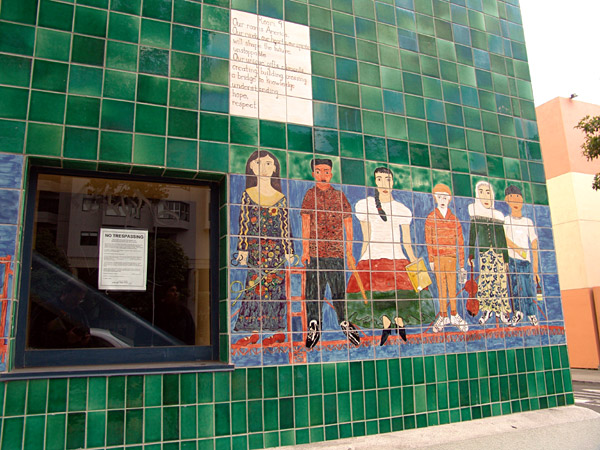
People seem confused about equity. Some claim equity means the equality of outcomes, and are calling instead for an equality of opportunity. Others see the call for equity as a socialist plot meant to destroy society. Amongst those who profess ignorance on the issue are even people like Senator Bernie Sanders, who should know better.
It helps to quote – and watch – his exchange with Bill Maher in detail because it is very instructive of the confusion around the issue:
MAHER: [reading audience question] “Are we confusing equality of opportunity with trying to guarantee equity in outcomes?” […] [Maher:] “I think this word ‘equity’ has come into the language in the last few years and before that we didn’t hear it a lot. And I think a lot of people hear ‘equity’ and they hear ‘equality’ like it’s the same word, but it’s not the same word and the same concept. So how would you differentiate between equity and equality?”
SANDERS: “Well equality, we talk about – uh, I don’t know what the answer to that is.” […] “Equality is equality of opportunity” […]
MAHER: “Equity, I think, is more of a guarantee of outcome, is it not?”
SANDERS: “Yeah, I think so.”
MAHER: “So, which side do you come down on?”
SANDERS: “Equality.”
(Real Time with Bill Maher, March 3, 2023, Overtime, see also article by Jeffrey Clark)
It is instructive to see how the deliberate mis-framing of equity by Maher is “guarantee if outcome” prompts Sanders to agree with him, which points to a strange acceptance of this distortion of the concept. Maher presents a false choice here – equality vs. equity – and Sanders, strangely, rejects equity.
But this is a false choice, and a false framing – like a lot in the discourse against Diversity, Equity, Inclusion and Belonging (D.E.I.B.), the counter-positioning of equity vs. equality suffers from a resistance to understanding what these concepts actually mean and stand for. “Diversity” is a fact of nature, “inclusion” is the core value of American society (whether or not the United States has always lived up to it) and “belonging” is again a very American value representing traditional concepts of community and democracy.
So, now, what is the distinction between equity and equality?
The core enlightenment idea that “everyone is born equal” points to political equality – everyone by nature, by being born – has the same political rights, the same liberties, the same guarantees – famously, “life, liberty and property” (the latter is Lockean term, or, in its American re-phrasing, “happiness”).
This political equality, of course, does not mean a negation of difference. While we may believe that we all should have the same rights, that does not mean that we are the same. We are all different. These differences pertain to biology, wealth, ethnicity, skin color, status, religion, race, class, caste, gender, age; a variety of circumstances – some of which you may be able to change over time, others you won’t be able to change, and some you may change but others won’t accept that change.
But notwithstanding these differences, all citizens have the same rights. They are equal in a political sense.
How do we make political equality work in practice? How do we ensure this translates, realistically, into an equality of opportunity?
This is exactly where equity comes in. Equity is not about guaranteeing outcomes but about guaranteeing an equality of opportunity. It is about leveling the playing field so that the theoretical equality can be achieved in practice.
The notion of an “equality of outcomes” is both preposterous and silly – of course, that cannot be guaranteed, and it is not something demanded by D.E.I.B. (or whatever acronym or phrasing may be used in the future). Proponents for equity typically call for making sure that no hidden barriers exist anymore preventing the inclusion of people of color, of women, of different gender identities, of people with disabilities, of people considered either too old or too young, of people with different ethnic background, different religious beliefs, etc.
In the end, this is about both fairness and democracy. Equity calls for making sure that our democratic promise actually holds true for all – and that barriers can be overcome which are still preventing people from actually being able to exercise their politically desired equality of opportunity.

